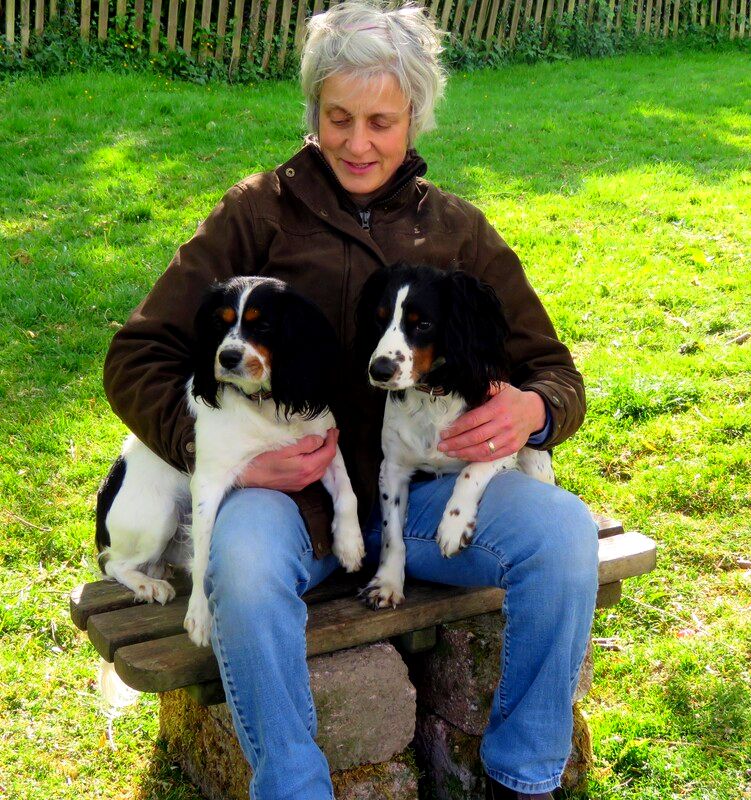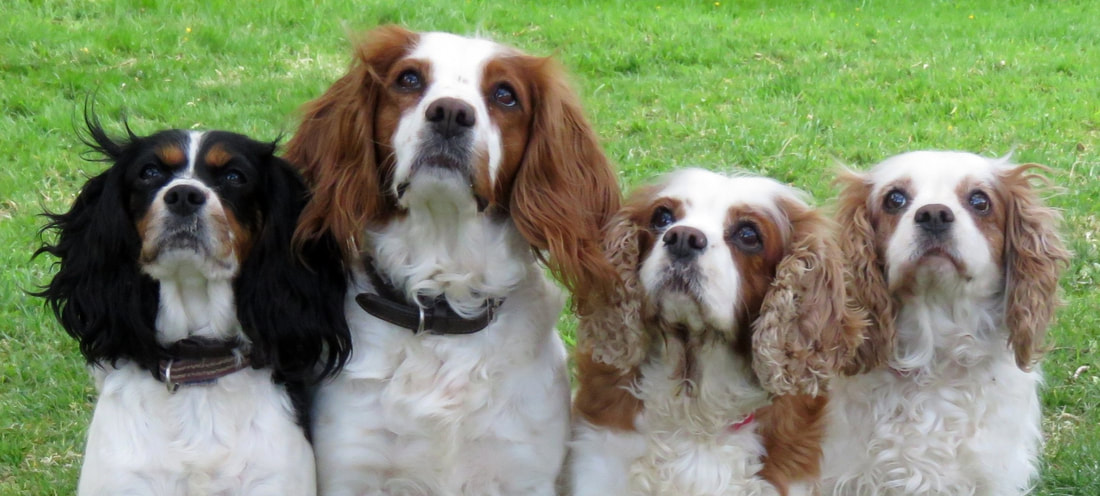|
Vaccinating pups has for breeders become a massive pain and is why we have stopped doing them before pups leave us. From the information I have garnered, I personally prefer to start them at 12 weeks or over, but that is my personal choice and would say to anyone worried about when to vaccinate. "That they should ask their vet, as unlike me. They have insurance to claim against if the advice given turns out to cause problems for your puppy." Anyway I found this very interesting blog post written by a vet on a veterinary clinic's website Puppy Vaccinations - Why Should I Wait Until 10 Weeks. I thought I would put it up for those worried about when to get your puppy vaccinated and think they need to be vaccinating them as soon as they hit 8 weeks. You can read the blog entry (below) in full. Yes, giving a puppy it's first DHP over ten weeks old, you give one and they are covered in the same time as a pup being started at 8 weeks and having two jabs. Also add that at Poundlane our Mum's self wean, so pups are suckling still from Mum up until leaving us, so much more likely to have good doses of antibodies from Mum, as Mum is vaccinated for DHP and Lepto4. Hence the reason why if you vaccinate at 8 weeks you have to do two jabs, because at 8 weeks Mum's antibodies can still stop the vaccines uptake in them and by 10 weeks most pups, Mum's antibodies in them have depleted enough for the vaccine to fully work. "26 Jun 2020
Puppy Vaccinations – Why Should I Wait Until 10 Weeks? Before Covid-19, we used to offer 2 different vaccination schedules for puppies, one that started when they were 8 weeks old, one that started when they were 10 weeks old. Here’s how the schedules compare: 8-week start
10-week start
Given the risk of coronavirus transmission to owners and staff that every vet visit brings, we believe that for most puppies, it is sensible to start the vaccines at 10 weeks rather than 8, avoiding the need for a third visit. This is why a 10-week start is currently our standard regime. If your puppy meets any of the following criteria, there may be an argument for starting vaccinations at 8-weeks instead:
11 Comments
Helen Perryman
6/16/2021 07:19:19 am
I also recommend a final vaccination for DHP at 16 weeks or older. This is because maternal antibody can last longer than 10 weeks and interfere with finishing the vaccine course at this age. If that happens, the puppy is then left without protection once the maternal antibodies have gone until their first 'booster' vaccination, normally at around 15 months of age. The WSAVA vaccine guidelines are for core vaccines to be given every 2-4 weeks until 16 weeks of age and then a 'booster' vaccination at 26 weeks (see https://wsava.org/wp-content/uploads/2020/01/WSAVA-Vaccination-Guidelines-2015.pdf for more details). A titre test at 19-20 weeks of age can inform you as to whether your pup has responded appropriately to the vaccine.
Reply
Jane
6/16/2021 08:09:29 am
That's a lot of vaccine.
Reply
Helen Perryman
6/16/2021 07:26:19 am
Forgot to say, the length of time the puppies are suckling doesn't have any effect on the transfer of antibodies. The antibodies are in the colostrum and first milk, and a few days after birth the puppy's gut will not absorb further antibodies. So the critical factor is the concentration of antibodies in the mother's early milk (likely to be higher the more recently she has been vaccinated), and the amount of colostrum that puppy had.
Reply
Jane
6/16/2021 08:07:59 am
I would argue the point that levels of antibodies are elevated the first few days after birth and then decrease, but are present in the bitches milk throughout her lactation.
Reply
Helen Perryman
6/16/2021 09:00:19 am
Yes, they might be present in the milk throughout lactation, but the puppy doesn't absorb them after the first few days as the gut develops. Which is why getting the colostrum is really critical. With regards to the amount of vaccine, I don't tend to recommend a 26 week vaccine, I think 16 weeks is perfectly adequate, but I would be wary of giving a single DHP at 10 weeks and then not doing anything for another 12 months. It might be okay in most dogs but I know colleagues who have seen cases of parvovirus in dogs like this, and personally I wouldn't take that risk. Titre testing is a sensible alternative for anyone concerned about over-vaccination.
Jane
6/16/2021 09:34:13 am
Yes, getting colostrum in the first few days is very important, as this is when it is at its highest level. Yes the pups stomach stops being able to absorb colostrum, but a bitch does not produce colostrum after a couple days and may even be why the milk changes so dramatically from a very yellow viscous liquid to milk looking similar to what we might put in our tea.
Jane
6/16/2021 09:53:34 am
Your reply and what a vet has written in a blog are a great example of why vaccinating is a nightmare for breeders and pet owners.
Helen Perryman
6/16/2021 11:01:06 am
Lol, yes, when I first graduated, things like timing of vaccinations and neutering felt so simple, but the more research that comes out on the risks and benefits of each, the more complicated it becomes!
Thanks Jane!
Reply
Lynn
6/16/2021 11:21:46 am
Thanks so much Jane, every day is a school day!
Reply
Your comment will be posted after it is approved.
Leave a Reply. |

Active, sporting, sound little spaniels
Click on this link The POUNDLANE Spaniel to view our main website Contacting usAt the moment we have an issue with our new landline. If you want to contact me at this time you can email me at janethowarth06@gmail.com
Click HERE to know what our facebook page is for. “Humans are aware of very little, it seems to me, the artificial brainy side of life, the worries and bills and the mechanisms of jobs, the doltish psychologies we've placed over our lives like a stencil. A dog keeps his life simple and unadorned.” Brad Watson, Last Days of the Dog-Men: Stories
AuthorWelcome to this blog. I am Jane, a hobby breeder, situated in North Devon, England, UK (map at bottom of page ,shows where we are) on a quest to breed a healthier small spaniel similar to the Cavalier King Charles Spaniel. Archives
June 2023
WE DO NOT EXPORT PUPPIES
Why I don't export AT POUNDLANE
Our breeding dogs are multi generational extensively health tested. With all our breeding stock having recommended and relevant DNA tests for their breed/breeds. We also have breeding stock annually eye examined on the BVA Hereditary Eye Disease Scheme for dogs, MRI scanned on the BVA scheme using the BVA chiari malformation /syringomyelia breeding protocol, and heart examined using The Kennel Club Heart Scheme for Cavalier King Charles breeding protocol |


 RSS Feed
RSS Feed
